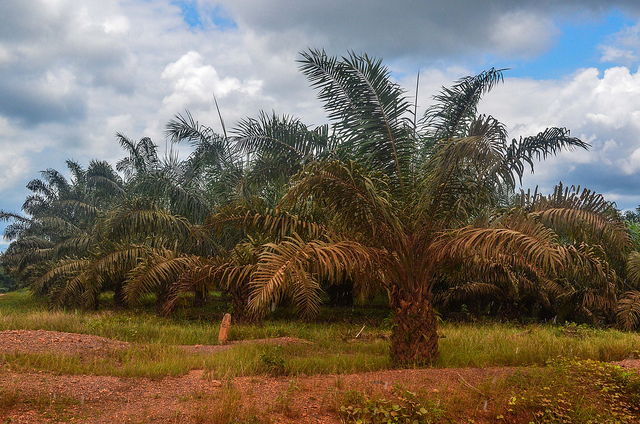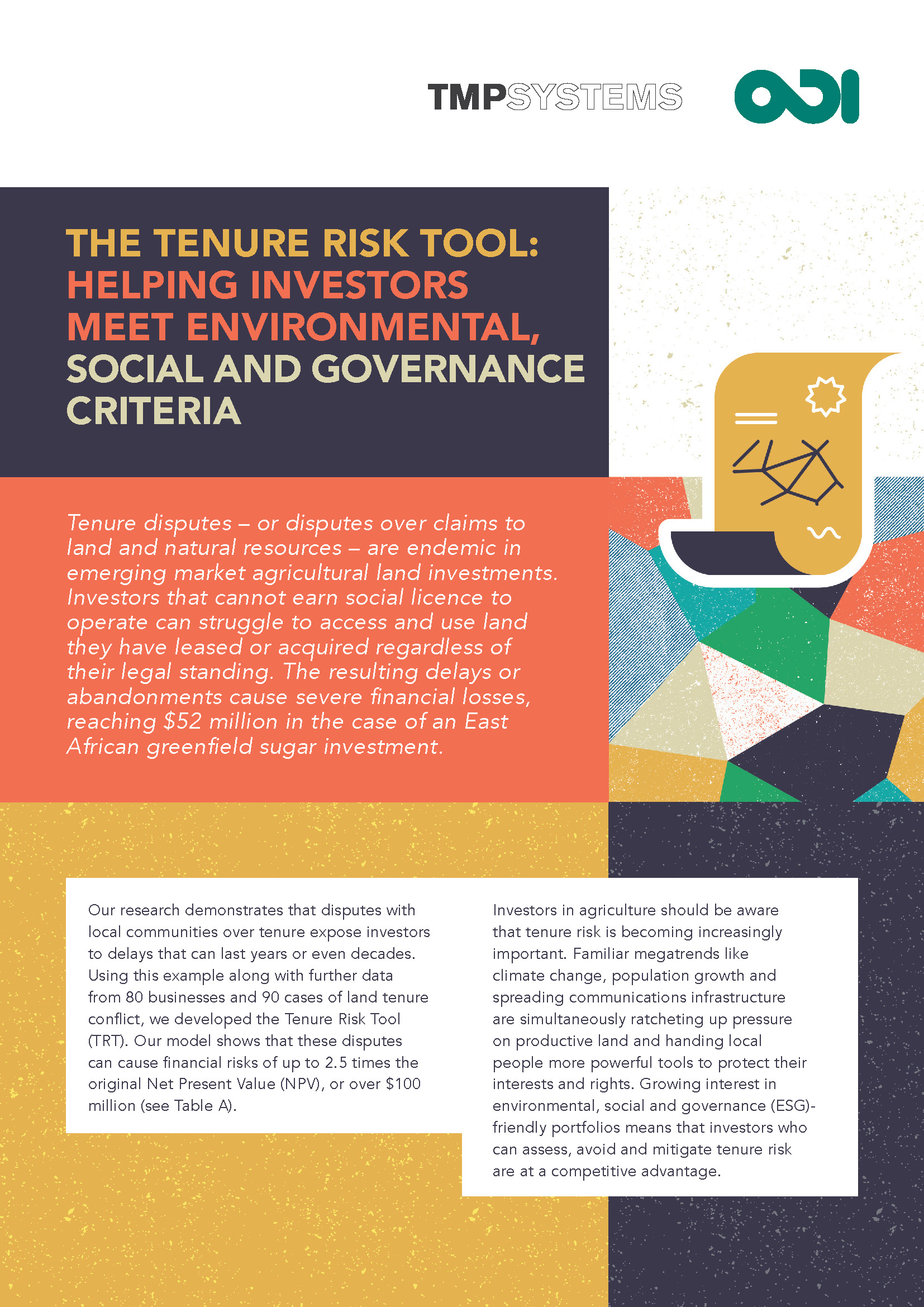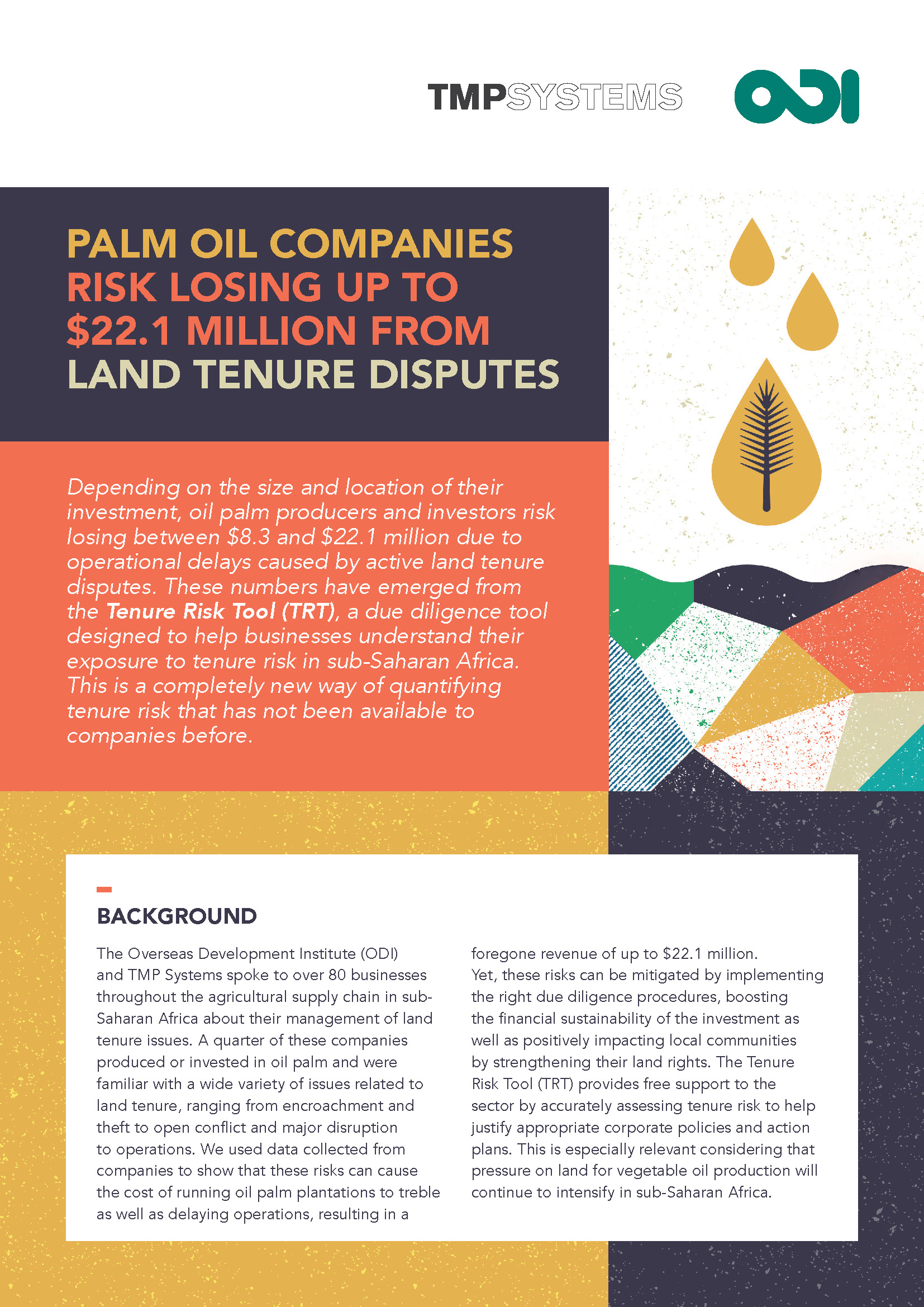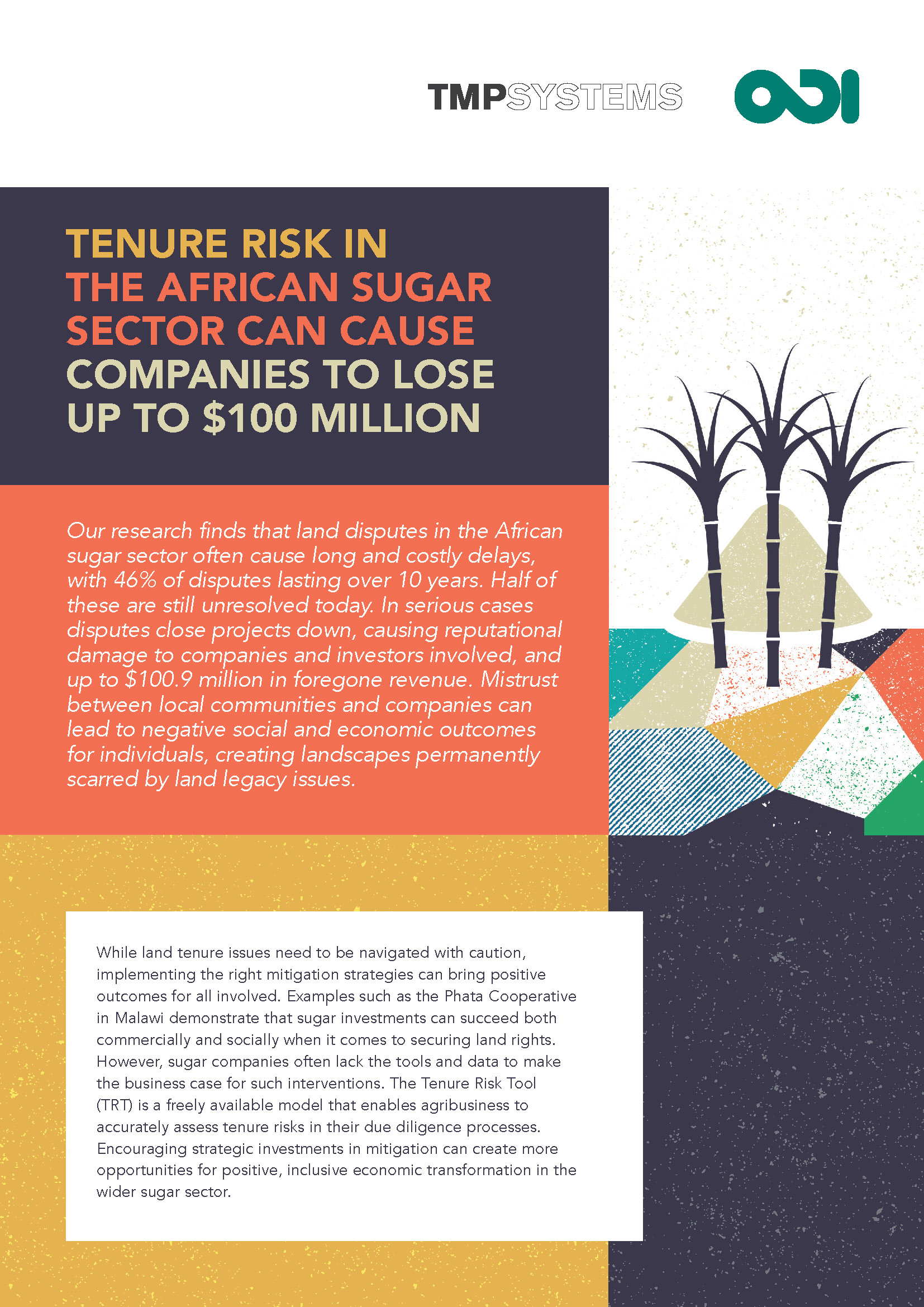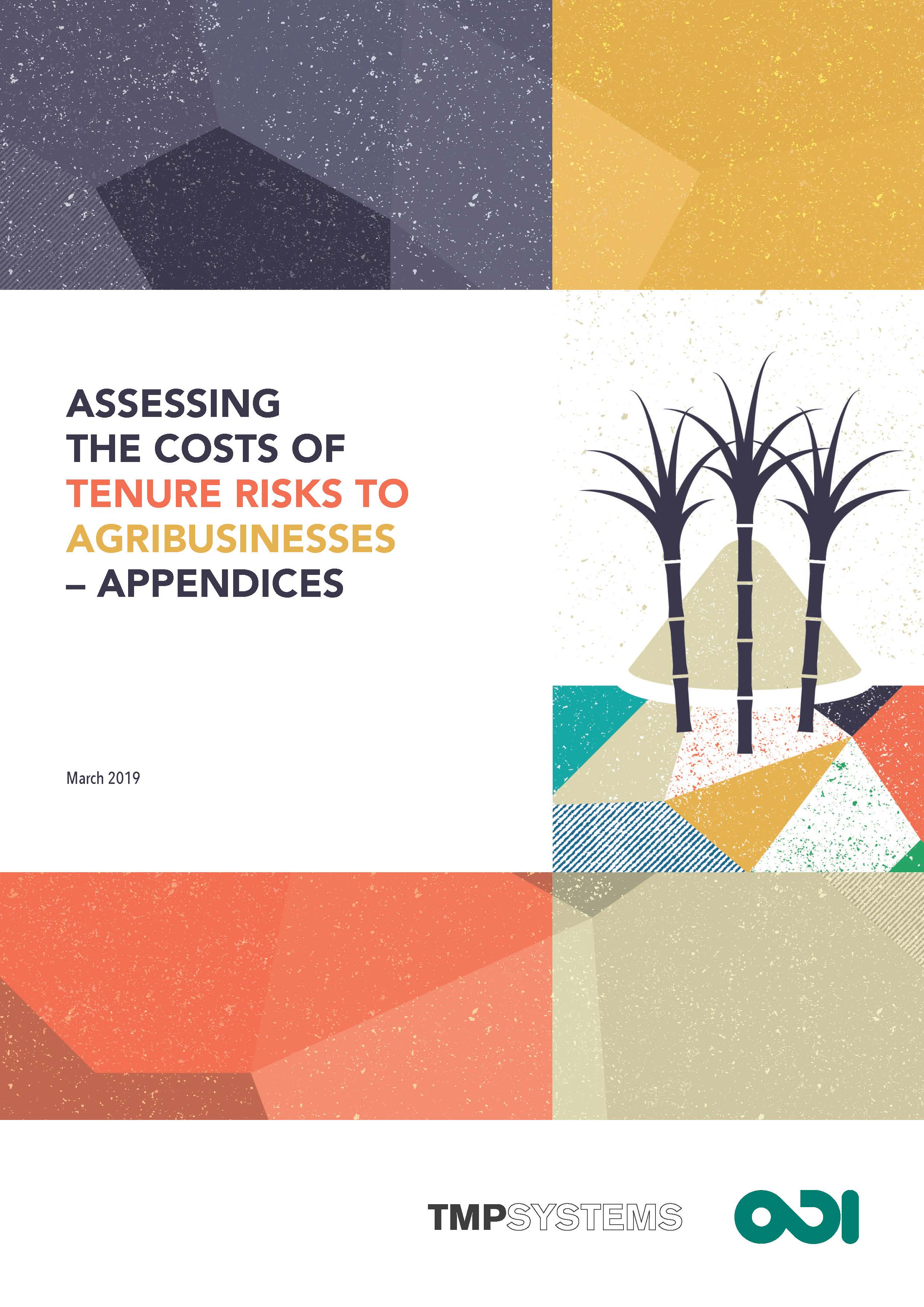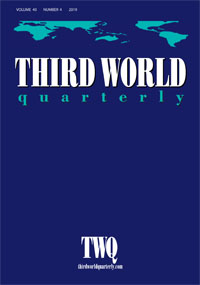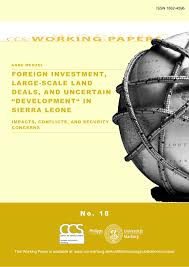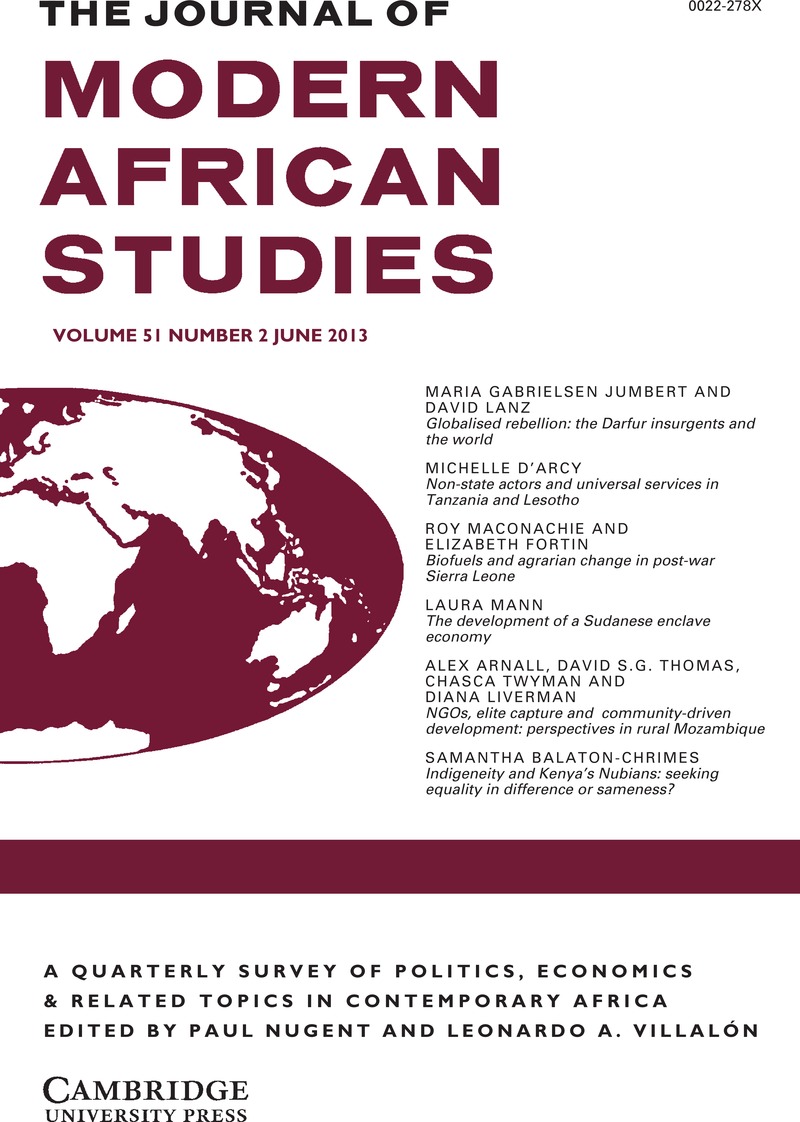QTR Tenure Risk Tool
New research by the Quantifying Tenure Risk (QTR) initiative has revealed that land disputes can cause losses of up to $101 million across a range of agricultural projects in Africa, while at the same time causing significant harm and stress to local communities who have a claim to the land.
In response, the initiative has developed a new publicly available economic modelling tool to accurately determine the potential cost of a dispute in a bid to help companies avoid harmful investments.

